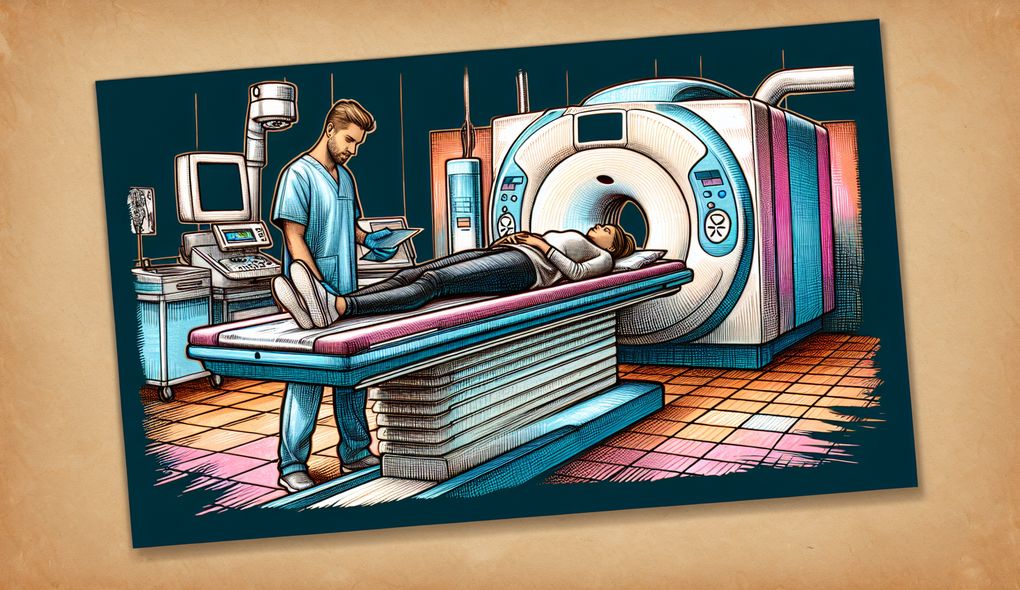Describe a time when you encountered a challenging patient who was anxious or fearful about a radiology procedure. How did you address their concerns and provide reassurance?
SENIOR LEVEL

Sample answer to the question:
I encountered a challenging patient who was anxious about a radiology procedure when I worked at XYZ Hospital. The patient was scheduled for an MRI scan and was extremely claustrophobic. To address their concerns, I took the time to explain the procedure in detail, emphasizing that they could stop the scan at any time if they felt uncomfortable. I also showed them the MRI machine and let them take a tour of the facility. Additionally, I offered them a blanket and headphones to make them feel more comfortable during the procedure. This approach helped the patient feel more at ease, and they successfully completed the MRI scan without any issues.
Here is a more solid answer:
During my time at XYZ Hospital, I encountered a patient who was anxious and fearful about a radiology procedure. The patient was scheduled for a CT scan and expressed concern about the potential radiation exposure. To address their concerns, I took a proactive approach in explaining the benefits of the procedure and the minimal risk of radiation exposure. I made sure to use clear and simple language to ensure the patient understood the information. Additionally, I provided them with a detailed brochure that explained the procedure and safety measures in further detail. I also took the time to actively listen to their concerns and empathize with their anxiety. By acknowledging their fears and reassuring them that their safety was our top priority, I was able to alleviate their anxiety and build trust. Throughout the procedure, I continuously checked in with the patient, providing reassurance and answering any questions they had. This approach helped the patient feel more comfortable and confident in their decision to proceed with the CT scan.
Why is this a more solid answer?
The solid answer expands on the basic answer by providing more specific details about how the candidate communicated with the patient and addressed their concerns. It mentions using clear language, providing educational materials, actively listening, and continuously checking in with the patient. However, it could still benefit from providing more information about the candidate's interpersonal skills and ability to manage patient care.
An example of a exceptional answer:
While working at XYZ Hospital, I faced a challenging situation with a patient who had extreme anxiety and fear related to a radiology procedure. This patient needed a fluoroscopy exam, and their fear of radiation exposure was causing significant distress. To address their concerns and provide reassurance, I took a multi-faceted approach. First, I thoroughly explained the procedure, emphasizing the safety measures in place to minimize radiation exposure. I used visual aids and diagrams to ensure the patient had a clear understanding. I also scheduled a pre-procedure consultation to address any additional concerns and answer any questions. During the exam, I made it a point to provide constant verbal reassurance and support, reminding the patient of the safety protocols at each step. To further alleviate their anxiety, I utilized distraction techniques such as engaging them in conversation about their hobbies and interests. Additionally, I involved the patient's family member, creating a supportive environment. After the procedure, I followed up with the patient to check on their well-being and address any lingering concerns. Overall, my empathetic approach, clear communication, and use of distraction techniques helped alleviate the patient's anxiety and build trust, resulting in a successful radiology procedure.
Why is this an exceptional answer?
The exceptional answer goes above and beyond by providing even more specific details about how the candidate addressed the patient's concerns and utilized distraction techniques. It also highlights the candidate's ability to involve the patient's family member and their commitment to follow-up care. This answer demonstrates strong interpersonal skills, patient care, and ability to manage challenging situations.
How to prepare for this question:
- Familiarize yourself with various radiology procedures and their potential challenges or concerns.
- Develop excellent communication skills, including the ability to explain complex procedures in simple terms.
- Stay informed about radiation safety protocols and be prepared to address patient fears related to radiation exposure.
- Learn distraction techniques to help alleviate patient anxiety during procedures.
- Practice active listening and empathy to show patients that their concerns are heard and understood.
What are interviewers evaluating with this question?
- Communication
- Patient Care

